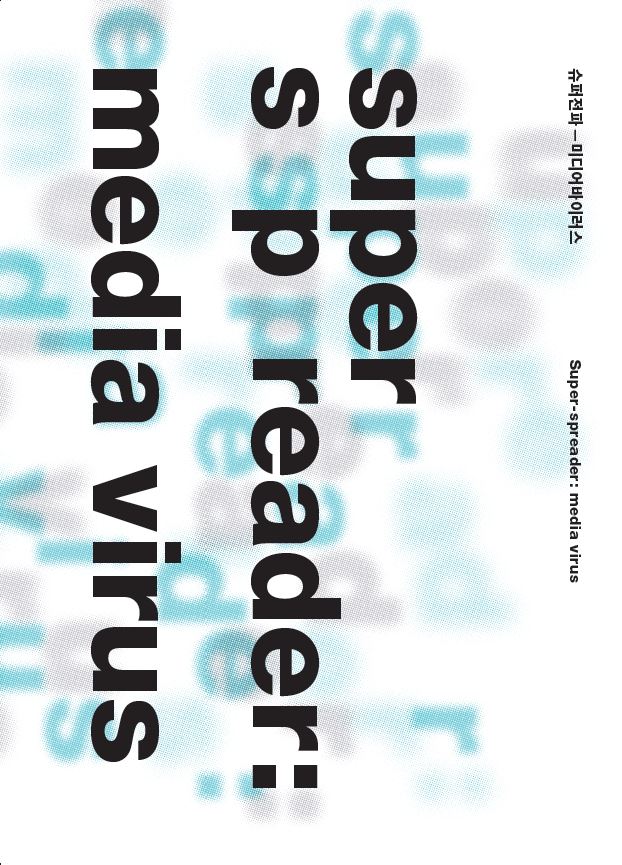Super-spreader: media virus
admin - April 12, 2016
Hits 2923
Published on
18 December 2015
Editor
Hyunjeung Kim, Jihee Kim
Publisher
Nam June Paik Art Center
Super-spreader: media virus
Super-spreader: media virus examines the role and influence of media that are currently undergoing a change as various forms of media are distributed to a greater population. The exhibition also investigates issues that emerge from the rapid dissemination and spread of communication. The subjects of focus in the current exhibition are the establishment of media as a powerful authority and the change in the lives of individuals in the current period are. In the past, media was mainly used as a means to maintain authority or sustain a system through surveillance, control, or blockage of information. In the 21st century, however, different forms of media influence each other through sharing, participation, and diffusion. It is now changing into a strategic tool for individuals or minority groups. The current change is in the same vein with the prediction made by Nam June Paik, who observed even televisions would cease to function as a means of one-way communication and become a participatory, interactive medium. In contrast to the generations from the past, the current ‘media’ generation of artists recognizes media as a living organism. When they work together, they sometimes disseminate information or opinions on certain events of the society in a terrifying pace, overthrowing existing systems and networks of information or proposing new ways of interpretation.
The participating artists of the current exhibition are those that were born between the 1960s and 1980s, a period in which media started dominating households and the lives of individuals. Living through such a period, they have experienced diverse media, ranging from television, movie, and videotape to the internet, moving images, and social network services. They are the generation accustomed to such phenomena both in their lives and works. At the same time, they are artists that take a critical view on a society dominated by media. While the artists use the media they are most accustomed to, they simultaneously deconstruct and connect the existing concepts – taste, language, knowledge, communication, agency, technology, community, and family – through their own unique interpretations. In the meantime, they also reinterpret diverse information and its fragments displayed on different flat screens. Presenting their reinterpretation in intriguing ways, they raise questions for the contemporaries living in the media-friendly age on how to establish relationship with media.
The participating artists of the current exhibition are those that were born between the 1960s and 1980s, a period in which media started dominating households and the lives of individuals. Living through such a period, they have experienced diverse media, ranging from television, movie, and videotape to the internet, moving images, and social network services. They are the generation accustomed to such phenomena both in their lives and works. At the same time, they are artists that take a critical view on a society dominated by media. While the artists use the media they are most accustomed to, they simultaneously deconstruct and connect the existing concepts – taste, language, knowledge, communication, agency, technology, community, and family – through their own unique interpretations. In the meantime, they also reinterpret diverse information and its fragments displayed on different flat screens. Presenting their reinterpretation in intriguing ways, they raise questions for the contemporaries living in the media-friendly age on how to establish relationship with media.
Contents
- Foreword|Jinsuk Suh
- 11 Medias and its Stories|Hyunjeung Kim
- Works
Sean Snyder
Ann-Sofi Sidén
Rho Jae Oon
Albert Merino
Nathaniel Mellors
Insane Park
Mioon
Ji-ryang Cha
Natalie Bookchin
Euclid
Yangachi - Intervening Media, Intruding Art: Media, Subject, and Art|Taek-Gwang Lee
- Artist’s Talk
- Artists’ CV
(ISBN 978-89-97128-25-9, 120pages, not for sale)
Comments [0]
Leave a comment
You must be logged in to post a comment.

















